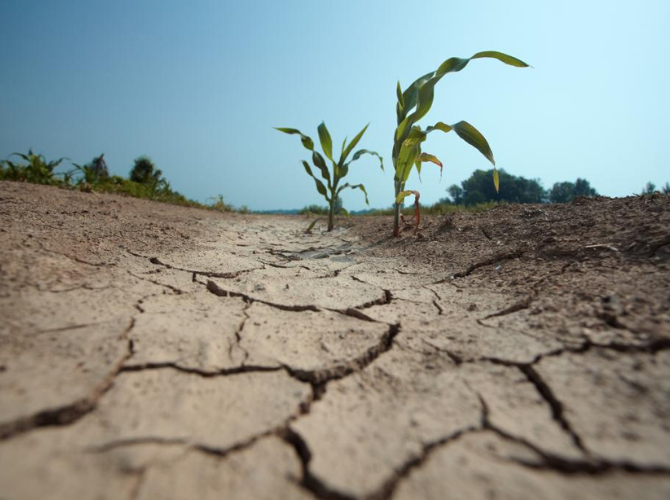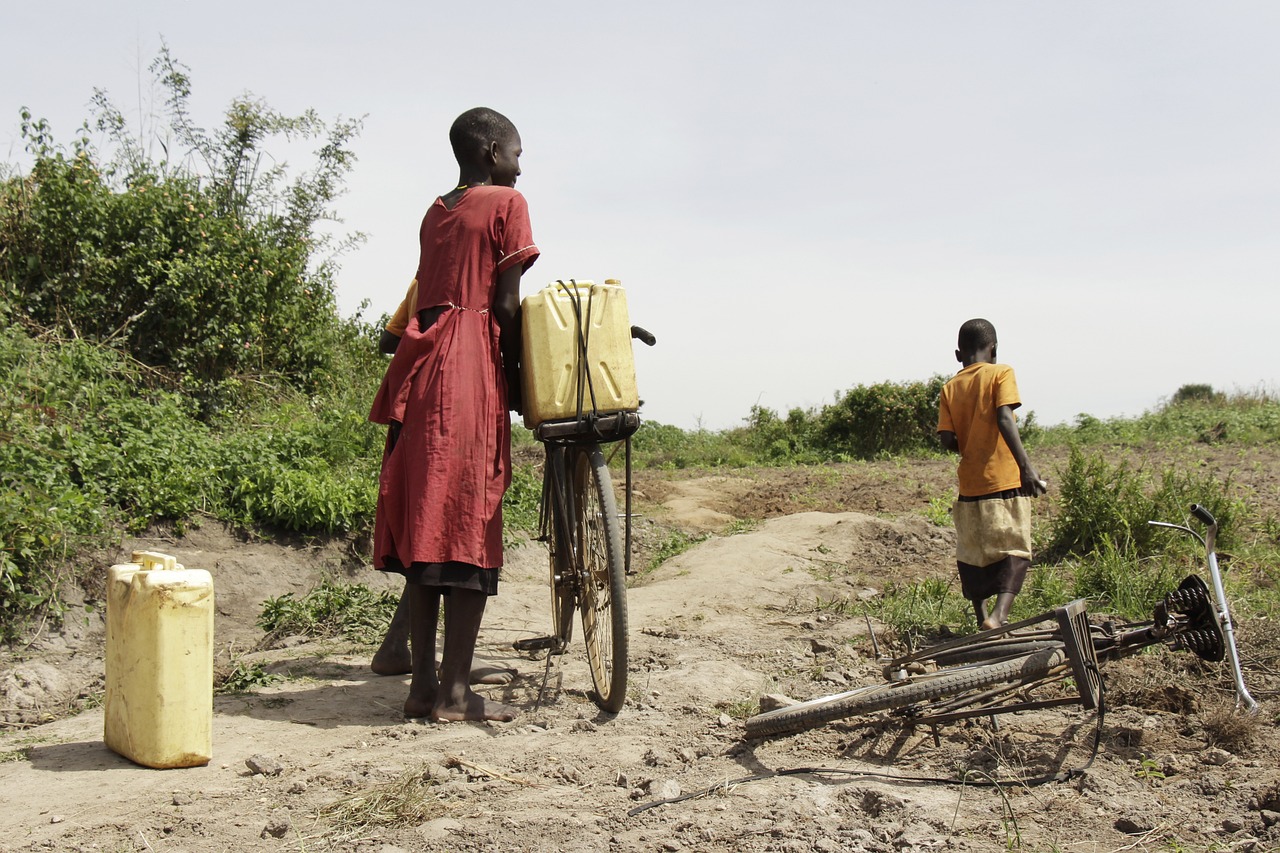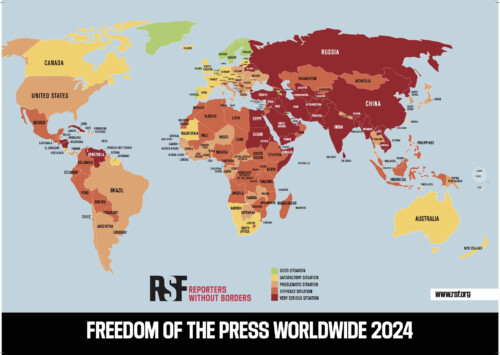Unprecedented planetary drought emergency, says ‘Global Drought Snapshot’
In a new report, the United Nations has warned that droughts are far more widespread and cause much more damage than previously thought and that human-induced droughts are leading to a global emergency.
According to the report, ‘Global Drought Snapshot,’ launched by the UN Convention to Combat Desertification (UNCCD) at the ongoing COP28 climate talks in Dubai in the United Arab Emirates, few if any hazard claims more lives, causes more economic loss and affects more sectors of societies than drought.
The UNCCD is one of three Conventions originated at the 1992 Earth Summit in Rio de Janeiro. The other two address climate change (UNFCCC) and biodiversity (UN CBD).
“Unlike other disasters that attract media attention, droughts happen silently, often going unnoticed and failing to provoke an immediate public and political response. This silent devastation perpetuates a cycle of neglect, leaving affected populations to bear the burden in isolation,” says UNCCD Executive Secretary Ibrahim Thiaw.
“The Global Drought Snapshot report speaks volumes about the urgency of this crisis and building global resilience to it. With the frequency and severity of drought events increasing, as reservoir levels dwindle and crop yields decline, as we continue to lose biological diversity and famines spread, transformational change is needed. We hope this publication serves as a wake-up call,” he adds.
Drought in numbers
According to the report, about 15–20 pc Chinese population will face more frequent moderate-to-severe droughts within this century, while by the year 2100, there is likely to be 80 pc increase in drought intensity in China by 2100.
In the Horn of Africa, about about 23 million people were deemed severely food insecure across the Horn of Africa in December 2022. Across the globe, about 5 pc of contiguous United States land surface faced severe to extreme drought as per the Palmer Drought Index in May, 2023.
The report also points out the drought conditions in the La Plata basin of Brazil–Argentina in 2022 were the most severe in the last 78 years, reducing crop production and affecting global crop markets.
Over 630,000 sqkm of land area, roughly the combined area of Italy and Poland, in Europe was impacted by drought in 2022 as it experienced its hottest summer and second warmest year on record, almost four times the average 167,000 sqkm impacted between 2000 and 2022. The drought last year in Europe was the most severe in 500 years and over 170 million people are expected to experience extreme drought if average global temperatures rise 3°C above pre-industrial levels, 50 million more than expected if warming is limited to 1.5°C, as per the report of the IPCC in 2022.
The report says that 70 pc of cereal crops were damaged by drought in the Mediterranean in 2016–2018, while total loss of grazing land in South Africa due to drought was 33 pc. There have been five consecutive rainfall season failures in the Horn of Africa, causing the region’s worst drought in 40 years, hitting Ethiopia, Kenya and Somalia particularly hard, contributing to reduced agricultural productivity, food insecurity and high food prices.
It adds that Africa’s drought-related economic losses in the past 50 years were over USD 70 billion. Similarly, severe water shortage is being repeatedly witnessed in many parts of the world. It says that there had been a reduction of 75 pc in of cargo capacity of some vessels on the Rhine due to low river levels in 2022, leading to severe delays to shipping arrivals and departures. It adds that at least 5 million people in southern China were affected by record-low water levels in the Yangtze River due to drought and prolonged heat.
Global effort to fight droughts
The report was launched at a high-level event with the International Drought Resilience Alliance (IDRA) in Dubai during the ongoing COP28 organised by the United Nations Framework Convention on Climate Change.
Launched by the leaders of Spain and Senegal at COP27, IDRA is the first global coalition creating political momentum and mobilizing financial and technical resources for a drought-resilient future. Australia, Colombia, Italy and the Union of Comoros, together with the Commonwealth Secretariat and four other major international organizations, are being announced at COP28 as IDRA’s latest members, bringing the Alliance’s total membership to 34 countries and 28 entities.
The report underlines land restoration, sustainable land management and nature positive agricultural practices as critical aspects of building global drought resilience. By adopting nature-positive farming techniques, such as drought-resistant crops, efficient irrigation methods, no-till and other soil conservation practices, farmers can reduce the impact of drought on their crops and incomes.
It adds that efficient water management is another key component of global drought resilience. This includes investing in sustainable water supply systems, conservation measures and the promotion of water-efficient technologies.
The report says that disaster preparedness and early warning systems are also essential for global drought resilience. Investing in meteorological monitoring, data collection and risk assessment tools can help respond quickly to drought emergencies and minimize impacts. Building global drought resilience requires international cooperation, knowledge sharing as well as environmental and social justice.
“Several countries already experience climate-change-induced famine.Forced migration surges globally, violent water conflicts are on the rise; the ecological base that enables all life on earth is eroding more quickly than at any time in known human history,” says the report.
“We have no alternative to move forward in a way that respects the planet’s boundaries and the interdependencies of all forms of life. We need to reach binding global agreements for proactive measures that are to be taken by nations to curtail the spells of drought. The less space the developed human world occupies, the more natural hydrological cycles will stay intact. Restoring, rebuilding and revitalizing all those landscapes that we degraded and destroyed is the imperative of our time. Urban intensification, active family planning, and curbing rapid population growth are prerequisites for societal development that respects planetary boundaries,’’ it adds.












